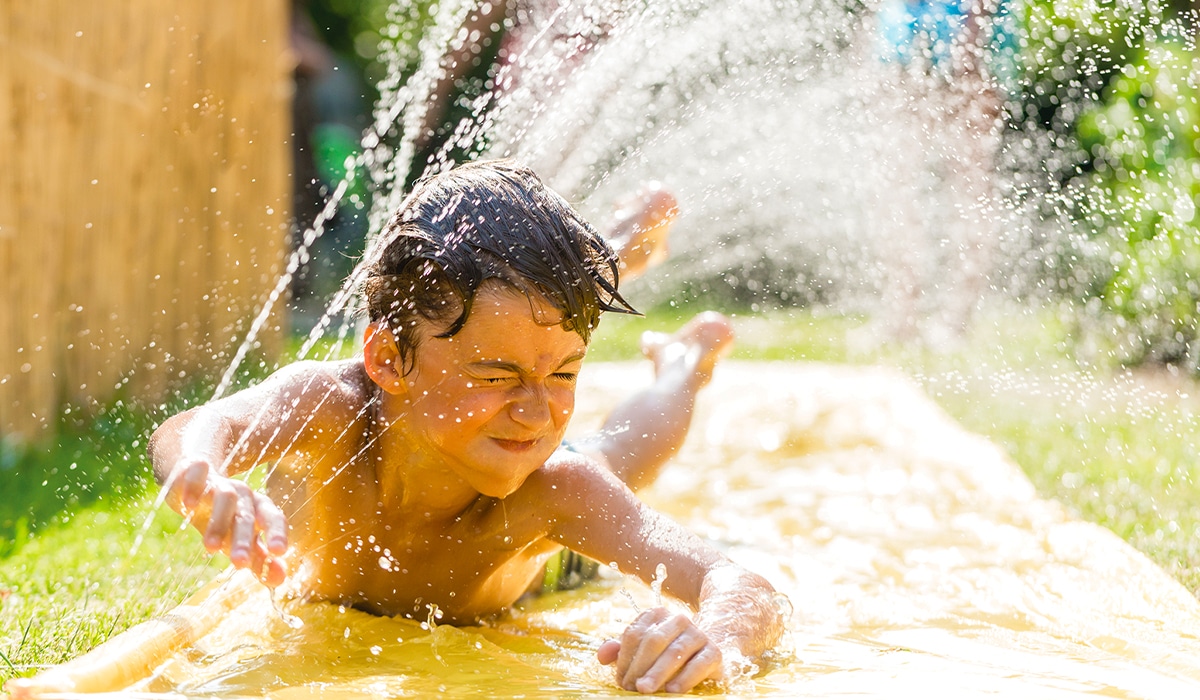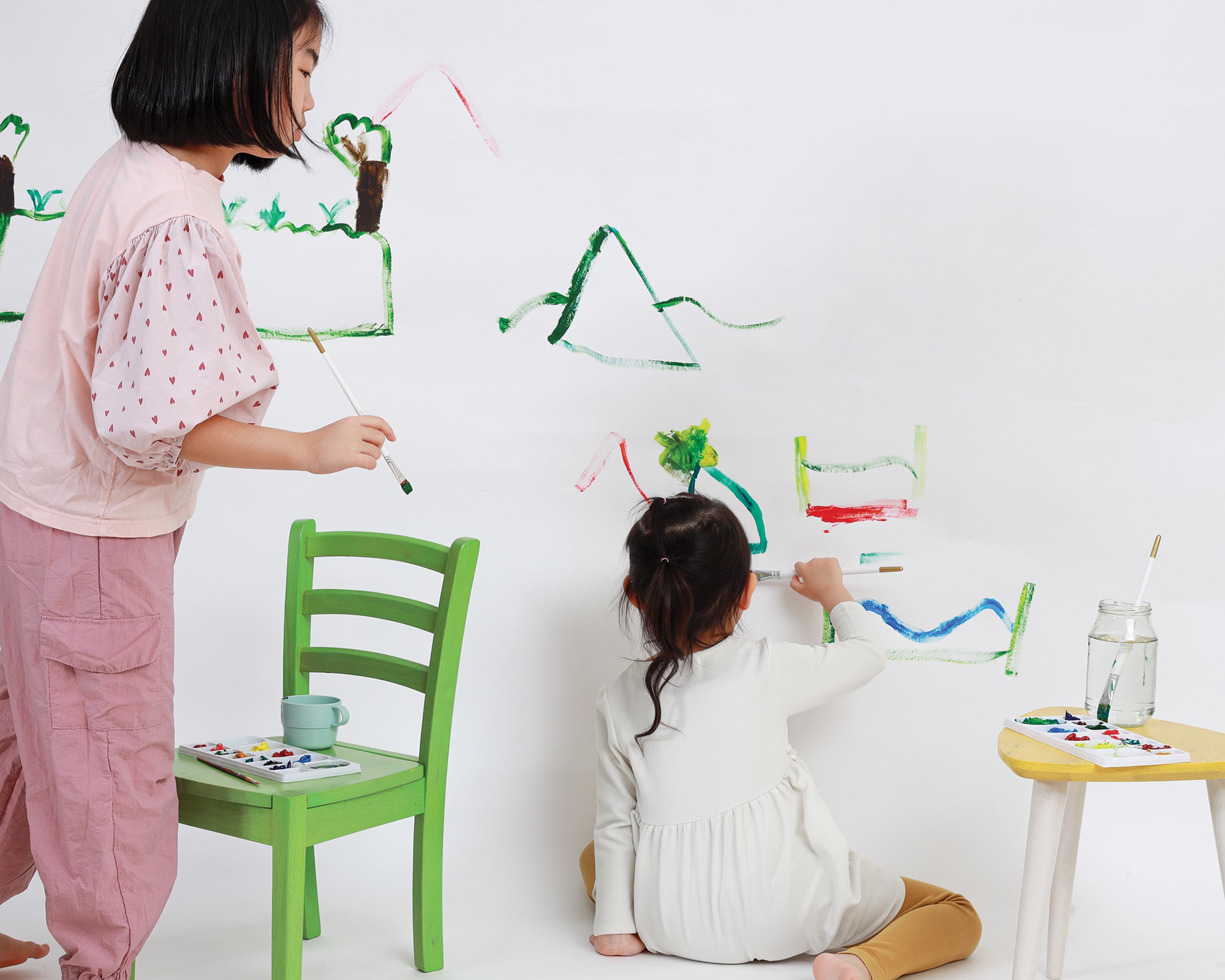School holidays are looming — yay! But also, nay. Just a few hours in and your kids will be bored and hungry, suddenly and inexplicably incapable of toasting bread or boiling an egg. How can you ensure that they don’t make a huge racket in the peace and quiet you need to work from home? Robyn MacLarty got some expert advice.
We’ve all been there: you’re only two days in, and already your children are showing signs of mutiny.
Only this isn’t a hostile takeover: it mostly consists of the younger one leaning against your ‘office’ (spare bedroom/storage dump) and huffing audibly every minute or so (small, seemingly benign exhalations, cumulatively not unakin to Chinese water torture) while the older one clangs dishes in the kitchen, which — due to extra-sensory powers developed over many moons of motherhood — you know is meant to convey ‘I’m hungry, so I’m going to bang things around in a huff until mom makes me a sandwich, rather than disturb her to ask for one, which she explicitly forbade’. It’s subtle, but unrelenting, pressure.
For many parents, the WFH arrangement has been a help amidst the turmoil of the Covid pandemic, especially after kids were (hallelujah!) allowed to return to school.
Yet — much like Winter in Game of Thrones — the Holidays are Coming, and you may find a knot forming in your stomach at the prospect of juggling the wants of a demanding boss with the needs of a clamouring band of offspring. How can you keep your wildlings occupied, and quiet, long enough to get some work done — without resorting to excessive screen time, bribery, or temper tantrums? Read on…
WHY DO KIDS GET BORED?
Gen Z and earlier millennials are one of the last generations to have grown up without the internet or screens or smart devices or social media filtering every nook and cranny of existence. And while some experts suggest that boredom is a sign that your child is under-stimulated, others would argue it is a sign that they may be passively overstimulated.
It makes complete sense that, upon having the structure of school timetables, homework and extracurricular activities removed, not to mention the rationing of screen time (more on that later), this sudden loss of externally exerted stimulus can come as a shock. Now here is the thing: they need it.
‘Kids often complain about being bored. But boredom can actually help them develop skills, creativity and self-esteem,’ says the Child Mind Institute. ‘Both little kids and older ones often need some help coming up with things to do with unstructured time. But once you’ve got them going, they can take the boredom ball and run with it.’ Kids who get bored have to learn to think for themselves and engage on their own — these are critical life skills.
PROVIDE THEM WITH CHOICES
So, does this mean you should just leave your kids to stare at their shoes for a few days? Not necessarily. Educational psychologist Megan Naude recommends always giving your child a choice between activities (two or three) to encourage them to engage in meaningful play. ‘For example, ask them if they want to play a game outside for 30 minutes or do a craft activity. Stimulating activities can be alternated with more relaxing activities such as having a nap or watching a movie, so that their regulation levels remain balanced.’
Giving kids a choice between two things also helps to give them a sense of control, rather than feeling like they have to do something because you said so.
‘KIDS OFTEN COMPLAIN ABOUT BEING BORED. BUT BOREDOM CAN ACTUALLY HELP THEM…’
STAY CALM
When conflict arises, as it inevitably will, try — yes, the struggle is real — to stay as calm as you can. ‘We call this model a “low arousal approach”, where focus is on the adult remaining as calm as possible when a child’s arousal levels increase and they start to become anxious or dysregulated,’ explains Naude.
Remember that children often look to adults as models when teaching themselves how they should regulate their emotions. Give them practical strategies and examples of what they can do when they start feeling frustrated, angry or anxious, such as taking five deep breaths, or kicking a ball outside for five minutes to release the tension.
NEGOTIATE THEIR SCREEN TIME
This is a difficult topic to prescribe, says Naude, as families and individuals often have very different routines and habits with regards to screen time.
She offers the following guidelines:
• For young children, balance screen time with toy play, gross motor play, fine motor play and quiet time activities.
• Have a few established rules around screen time, such as no screens during meals, turning screens off after a show is over or no screen time after 7pm.
• Avoid using screens as part of bedtime routines. Reading books together before bed is more conducive to a good night’s sleep than the over-stimulation of a lit-up screen.
• Avoid letting your child become dependent on your phone or tablet as the primary source of entertainment.
DON’T PLAN FOR EACH MINUTE
Finally, remember that you don’t have to keep children busy every minute of the day, says Naude. ‘Allow opportunities for resting, playing and connecting with you. Parents tend to put a lot of pressure on themselves to ensure they keep their children busy, yet just being present or allowing them the opportunity to play and rest is just as important.’

BOREDOM ISN’T BAD
‘Boredom is the source of true creativity,’ according to parenting expert, Nikki Bush. ‘Kids need to learn how to make fun out of nothing. This is called resourcefulness. I love watching children make creations out of waste like a marble run out of cardboard boxes and tubes from toilet rolls and tin foil, or playing ‘cricket’ with a stick, an empty coke bottle and two traffic cones while waiting for an older sibling to finish school, or creating a fort with a garden umbrella, blankets and branches pruned from the garden.’ According to Nikki, this is creativity and problem solving in action. Thinking made visible without following someone else’s instructions. ‘Next time your kids ask what they should do because they are bored, say: “I don’t know, what do you think?”, instead of entertaining them. It’s amazing what kids will come up with if they have to!
Nikki Bush is a Human Potential and Parenting Expert. She is a published author and gives talks on parenting around the country. Find out more at www.nikkibush.com.
Words by Robyn MacLarty
Photography: Adobe Stock







